Posted on 12/21/2021
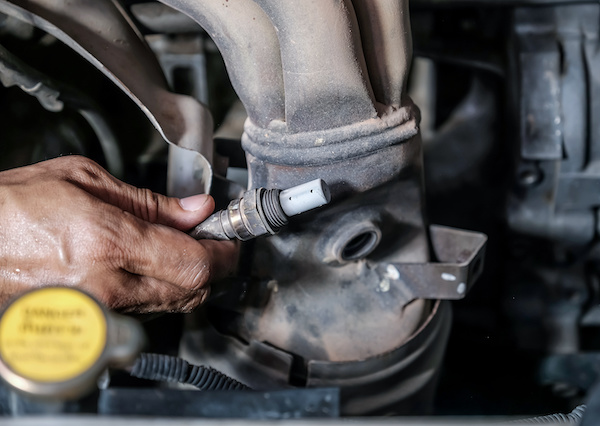
Oxygen sensors are used in cars to measure the amount of oxygen in the exhaust. When there isn't enough oxygen, the engine runs rich, making it difficult for the vehicle to accelerate. The symptoms of a bad oxygen sensor include lack of power, lack of acceleration, or reduced fuel economy. The other symptoms are clogged fuel injectors, a faulty catalytic converter, or a failing EGR valve. What Is an Oxygen Sensor Inside of a Vehicle? A sensor is an integral part of an engine in a car. Sensors in vehicles monitor the activities in the car engine and report to the driver. It detects and controls the engine's air-fuel ratio by regulating fuel injection. An oxygen sensor is a technological device fitted to measure the amount of oxygen present in the engine's exhaust gas. It is an important instrument used in cars. It plays a significant role in determining whether your vehicle is running well or not. What Are the Most Common Causes fo ... read more
Posted on 11/29/2021
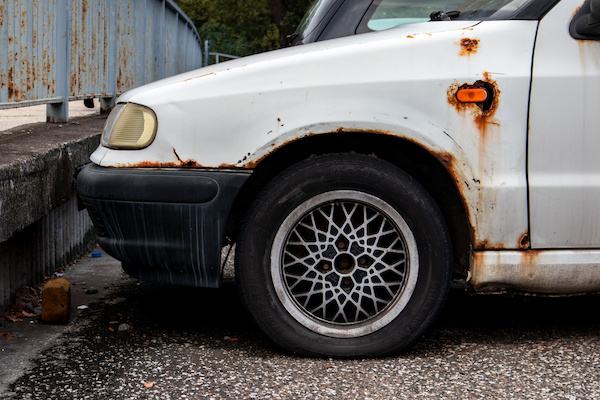
There's nothing more damaging to a gorgeous vehicle than hideous rust spots. They are more common than you think, but with the proper rust prevention methods, you can keep your car looking spotless for a long time. Let's do a deer dive in rust formation in vehicles: Certain areas of a car are more prone to rust than others, and unfortunately, a lot of the spots you don't see every day. The following parts are rust-prone: Bumpers Fenders Hood Trunk The undercarriage of the car Prevention Tips It might be silly to say, but washing your vehicle on a regular basis can help rust spots from developing. This is because a thorough wash will get rid of the abrasive elements and corrosive chemicals that can ruin your car's finish. Having a clean surface will keep your car paint in excellent shape. Also, applying wax or ceramic coating to your car can add an extra layer of protection against dirt and debris. There are also rust-protection sprays that you can use. Ad ... read more
Posted on 10/20/2021
.jpeg)
Brake failure can lead to deadly vehicle accidents, which is all mechanics stress routine brake inspections, maintenance, and repair. Your brakes must always be functioning and allowing you to stop your vehicle. There are four types of brakes: drum brakes, disc brakes, emergency brakes, and anti-lock brakes (ABS). The two kinds of service brakes are disc and drums, so your vehicle could have one or a combination of both. Additionally, all cars come with e-brakes and anti-lock brakes for an extra layer of protection. Drum Brakes Although drum brakes still exist in some cars today, they are the most traditional and straightforward ones. Drum brakes consist of a brake drum added to the inside of the wheel. When the brake pedal is pushed down, hydraulic pressure presses two brake shoes against the brake drum. This action results in friction and causes the car to slow and stop. Disc Brakes Disc brakes are the new and improved brakes that feature an enhanced design; they are most often u ... read more
Posted on 9/27/2021
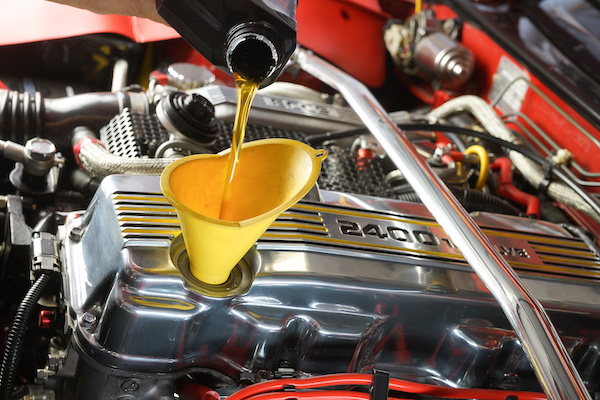
No matter how old you are and how much experience you have driven, maintaining your vehicle should always be a #1 priority for drivers. Even though the hustling and bustling city of Los Angeles, CA, can be a lot, we highly advise that you not miss an important service like an oil change. Most cars need their oil changed approximately every 5,000 miles (give or take). Clean oil is necessary to lubricate the vehicle's engine and ensure a smooth and safe ride. If you don't remember the last time you were in a shop for an oil change, then you should get one soon to avoid the following possibilities: Engine Damage. If you go beyond the period of necessary oil changes, you will experience engine troubles. In severe cases, it can shut down your engine completely. Engine repairs and replacements are not cheap. Engine Knocking. If the motor oil hasn't been exchanged out in a while, the oil may get dirty and thick. Engine oil should have a good flow and be free of debris to lubrica ... read more
Posted on 8/23/2021

Not all college students will have the benefits and convenience of living on campus. Additionally, if you are attending a community college, you may not have the opportunity to at all. Did you know that more than three-quarters of university students are commuters, so it is expected that your campus will be very busy during peak hours. With thousands of students driving to school in LA every morning and afternoon, you're more than likely to encounter some traffic and/or parking issues. The most important thing to grasp is to give yourself enough time to arrive at class on time and to always participate in safe driving practices. Here are some additional recommendations for your daily commute to school that will keep you and your vehicle safe: Tip #1: Leave for school early, especially in the first couple of weeks of classes. During this time, traffic will be the most congested. Leaving your house or apartment early will prevent you from speeding and running ... read more
Posted on 7/16/2021
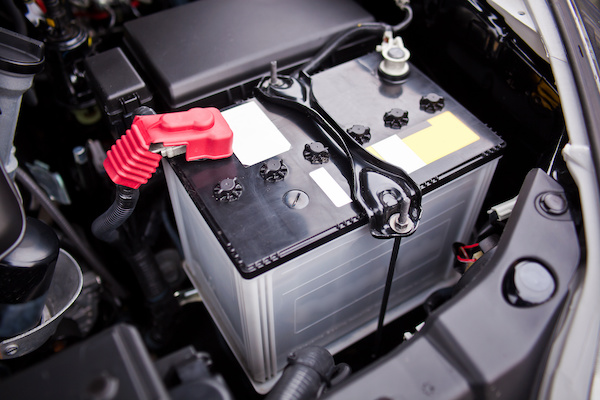
Your car battery is the powerhouse for all of your vehicle's electrical components. In other words, it powers the radio, power seats, power, windows, dashboard lights, exterior lights, car engine, and more. Battery maintenance significantly matters, especially now that we're in the middle of summer. With hotter weather, your battery can weaken more easily. If you stick to these tips, you can keep your battery operating longer: Battery Maintenance Tips Keep your car parked in the shade (preferably in an insulated garage). Avoid letting your vehicle sit in direct sunlight all day. If a shady parking spot or a garage isn't available to you, opt for some sunshades. Keep your battery clean. Regularly open the hood of your car and examine your car battery. It should be free of debris and residue in order to work effectively. If you notice any gunk on your battery, clean it off with a cloth. Make sure your battery is in place. While examining the exteri ... read more
Posted on 6/30/2021
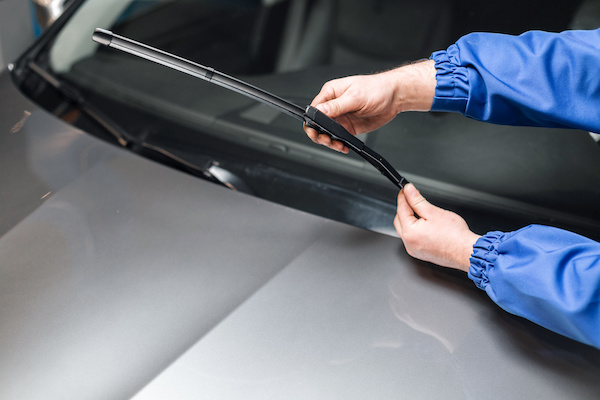
Functioning windshield wipers are imperative to both your safety and the safety of others on the road. We often don't think of them as part of our regular vehicle maintenance, but they are just as crucial as your oil change and tire rotations. So, if you catch yourself not seeing through the rain or snow, you should consider replacing them. But, please do not wait until it's too late and risk getting into an accident. How Often Should I Change My Wiper Blades? If you want to be extra careful, your wipers should be replaced every six to twelve months. However, the interval between each change can depend on usage, blade brand quality, and other external factors. Signs You Need New Wiper Blades Most of the time, you can rely on your senses to tell when to change your windshield wipers. Good, functioning wipers should always be able to clear out the water, snow, or slush on your windshield. Here are symptoms to look out for: Squeaky Noise It can ... read more
Posted on 5/26/2021
.jpeg)
When it comes to owning a vehicle, it is advised that you have your vehicle serviced following a 30/60/90K maintenance schedule. This schedule is created by your vehicle's manufacturer and is based upon the suspected lifespan of certain parts and fluids within your vehicle. Following this plan helps ensure that your vehicle runs at its best and helps you avoid major issues down the road. What Does 30/60/90K Maintenance Mean? Maintenance following this schedule just means that your vehicle should be serviced after 30,000 miles, 60,000 miles, and 90,000 miles. This is highly recommended for new vehicles and can also help to increase the effective lifespan of your vehicle and minimize the expenses involved in maintaining your vehicle. Some repairs, like a timing belt, are less extensive if the issue is caught early. A problem such as this ignored can lead to even more damage, which can lead to needing more repairs. Proper maintenance can save you mone ... read more
Posted on 4/26/2021

Now that winter is already a memory, it is perfect for a profound reminder of the seasonal-care-tips smooth transition into spring. Do not be surprised to hear that this is the car care month. As you say goodbye to cold temperature and harsh weather conditions, do not ignore the spring car maintenance tips for a smooth drive in the months coming up now that it is time to plan road trips amidst the warm weather. Your 5-Point Spring car Care Tip Remember that spring is the perfect time for you to prepare ensure that your vehicle systems work at optimum during the upcoming travel season. Here is a maintenance checklist for you! Change the Fluids Driving in harsh weather takes a toll on your car. Salt and fluids may have accumulated in your car's engine systems. It is important to schedule changes for basic fluids such as oil. Remember that oil picks up impurities as it runs to lubricate and cool the engine. Check Your Car Battery You can perform basic tests such as battery fluid ... read more
Posted on 3/17/2021
.jpeg)
Every vehicle comes equipped with a timing belt; this part on your vehicle controls the camshaft and crankshaft of the engine being able to rotate. It also operates the opening and closing of the valves in your engine allowing gasoline and air in and out. The job of the timing belt is to coordinate the engine's functions; this will cause fuel to ignite in the combustion chamber. Knowing what the timing belt is and what it does is one major step, but how do you know when your timing belt needs to be replaced? How do you know how often you need to replace your timing belt? Knowing how vital your timing belt is to the operation of your engine, you need to know that it will wear out over time, and will at some point need to be replaced. There are mileage intervals that are generally set by manufacturers that say you need to have your timing belt replaced. For most vehicles, it is anywhere between 60,000 – 100,000 miles. If you look in your owner's manual you will find the su ... read more